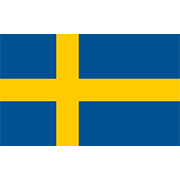Fiscal subject related
The Swedish Tax Agency has issued new regulations (SKVFS 2025:6) granting specific exemptions from cash register obligations for certain activities conducted at public entertainment events. These changes will take effect on January 1, 2026.
Under the new rules, traders participating in market trading at public events will be exempt from registering sales in a cash register for the following activities:
· Lotteries: Sales of lotteries that do not require a licence under Chapter 3, Section 5, Subsection 2a of the Gambling Act (2018:1138) are exempt, provided they are conducted at public entertainment events.
· Games of Skill: Activities such as ball throwing, dart throwing, shooting, and similar games are also exempt, with strict limits on stakes and prizes:
The maximum stake per game must not exceed 1/4000 of the price base amount multiplied by three. Prizes must be goods valued at no more than 1/60 of the base price amount, rounded to the nearest whole krona. These exemptions apply only to traders operating under the definition of market trading as specified in Chapter 39, Section 2 of the Tax Procedure Act (2011:1244).
The regulation is issued pursuant to Chapter 9, Sections 3 and 4 of the Tax Procedure Ordinance (2011:1261), and modifies the obligations outlined in Chapter 39, Section 7 of the Tax Procedure Act.
Other news from Sweden
Government of Sweden proposes a temporary VAT reduction on food.
 Sweden
Author: Nikolina Basić
Sweden
Author: Nikolina Basić
Sweden has proposed a temporary VAT reduction on food, lowering the rate from 12% to 6% to ease consumer costs under bill Prop. 2025/26:55. If approved, the reduced rate will apply from 1 April 2026 through 31 December 2027. In VAT legislation in Sweden, a new bill, Prop. 2025/26:55, has been introduced to temporarily lower the Value Added Tax (VAT) on foodstuffs from 12% to 6%. The proposal marks... Read more



Fisalization in Sweden: how to correct the wrong payment method recorded in the cash register
 Sweden
Author: Nikolina Basić
Sweden
Author: Nikolina Basić
We clariify if businesses have to issue a return receipt if a wrong payment method is recorded in a cash register? Read more
Subscribe to get access to the latest news, documents, webinars and educations.
Already subscriber? Login


Swedish Tax Agency Issues new amendments to Cash Register Regulations
 Sweden
Author: Nikolina Basić
Sweden
Author: Nikolina Basić
The Swedish Tax Agency has amended its cash register regulations (SKVFS 2025:8), effective October 1, 2025, updating rules on registration, malfunction reporting, and supervisory controls. Key changes include repealing certain provisions, requiring individual registration of each unit, and clarifying exemptions for customer-held devices. The Swedish Tax Agency has announced new amendments to its e... Read more



Sweden proposes a temporary VAT cut on food and bottled water starting in April 2026.
 Sweden
Author: Nikolina Basić
Sweden
Author: Nikolina Basić
Sweden’s Ministry of Finance has proposed cutting VAT on food and bottled water from 12% to 6% between April 1, 2026, and December 31, 2027, to ease household costs and support purchasing power. The measure, excluding alcohol and certain beverages, is aimed at countering inflation and awaits parliamentary approval. The Swedish Ministry of Finance has announced a proposal to temporarily reduce the... Read more



Swedish Tax Court Clarifies VAT Rules for EV Charging and Network Access
 Sweden
Author: Nikolina Basić
Sweden
Author: Nikolina Basić
The Swedish Tax Court’s Advance Notice No. 15-25/I clarified that both electricity supplied for EV charging and fixed network access fees are subject to Swedish VAT, as the place of supply is considered Sweden. The case involved a foreign EV charging app operator with no permanent establishment in Sweden, highlighting that domestic consumption triggers VAT liability regardless of the supplier’s location. Read more
Subscribe to get access to the latest news, documents, webinars and educations.
Already subscriber? Login


Sweden e-invoice and ViDA implementation
 Sweden
Author: Nikolina Basić
Sweden
Author: Nikolina Basić
Sweden is preparing for the EU’s ViDA directive by considering a national approach to e-invoicing and digital VAT reporting, with the Confederation of Swedish Enterprise urging a public inquiry. The Swedish Tax Agency has also launched a nationwide survey to gather business feedback, open through June and July 2025. Sweden is preparing for new EU regulations under the VAT in the Digital Age (ViDA)... Read more


